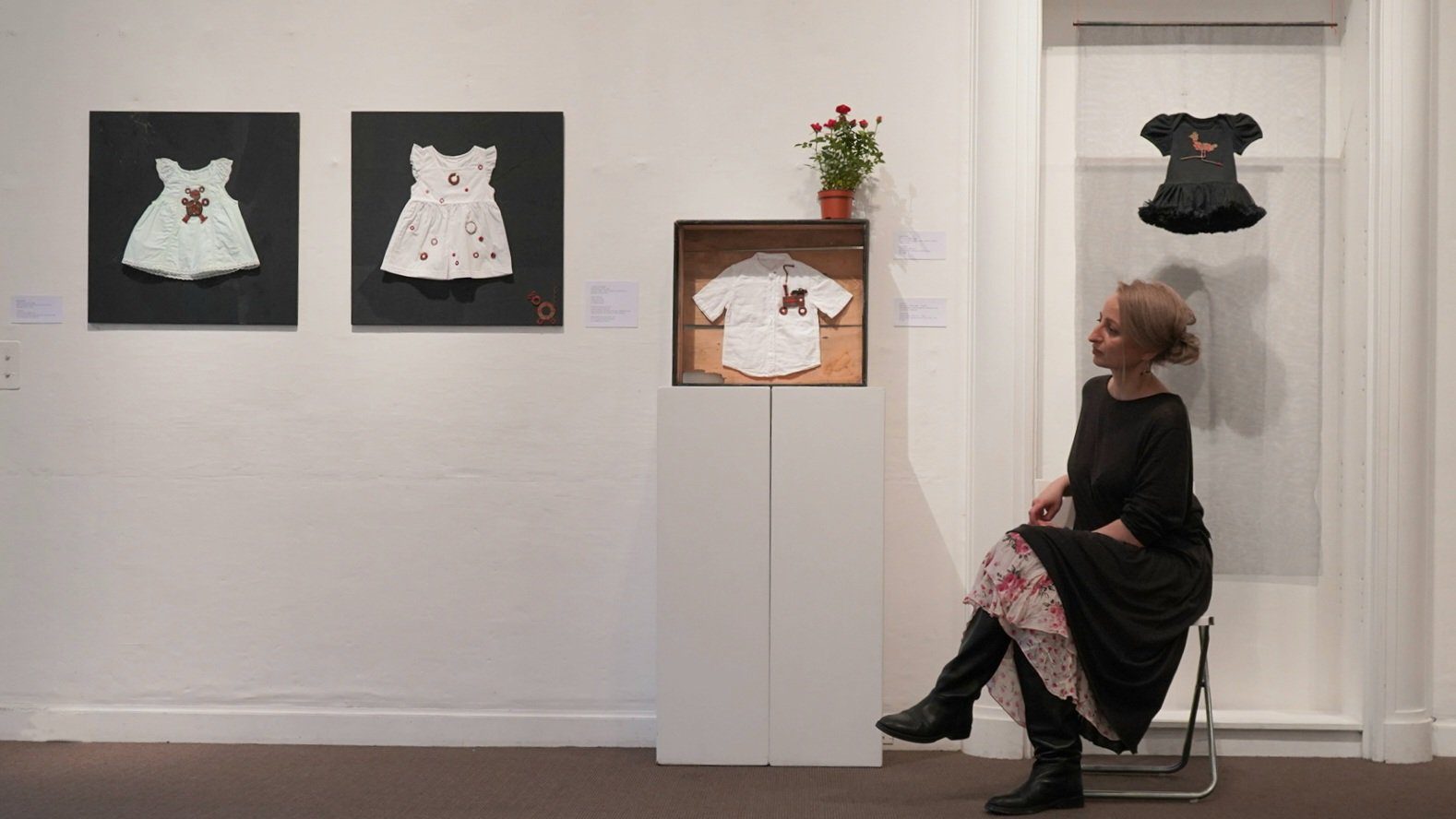This post is also available in: Bosnian
Kalamujic’s first book, ‘Anatomy of a Smile’, dealt with the issue of mental health, which, as she points out, is still a taboo in society today.
She belongs to the generation that was born in early 1980s in the country that was then called the Socialist Federal Republic of Yugoslavia and her second book, ‘Call Me Esteban’, was an award-winning collection of short stories about topics of conflict and loss connected to the break-up of the unified state.
In one of the stories in her most recent book, ‘Hurry Up and Invent a Town’, Kalamujic writes about wartime rape and the children who were born as a consequence.
She is also considered to be one of the leading authors of Bosnian queer literature, having explored LGBT themes in some of her short stories.
“I could never call myself an activist in a narrow sense, I don’t think that writing is the same and standing in the street and being beaten up or exposed to direct violence, but when I talk about the community, I try to help whenever and however I can,” she explained.
‘I felt my identity had betrayed me’
The Grbavica district of Sarajevo just after the war in 1996. Photo: Wikimedia Commons/US Department of Defence.
Kalamujic was born in an ethically-mixed family, her father being a Bosniak and her mother a Serb.
“Prior to the war, my mum and her family had always declared themselves to be Yugoslavs, so it was only on the eve of the war that I realised they were Serbs,” she said.
Her mother died when she was two, so she does not remember her at all. When the war began in Sarajevo in April 1992, Kalamujic was 12 and lived in the Vratnik neighbourhood in the old part of the city. At the beginning of the war, Vratnik came under intensive shelling, and her father and his family, so they decided it would be best for her to move to her mother’s parents, who lived in the Grbavica neighbourhood at the time.
She had the impression that she was going to her grandparents for an extended weekend with a small bag of belongings. At the time, everyone thought that the violence would stop soon, she explained, although a cousin told her: “This will not end before Thursday.”
She left Sarajevo the following month and spent two years living in Sid in Serbia before returning to the Bosnian capital not long before she turned 14. “During that time, it all felt like we were just surviving, so we didn’t think much about what was actually happening,” she said.
But the way she was brought up by her family had a lasting impact: “They raised me in the spirit of the 1980s and Yugoslavia, and all of a sudden that state no longer existed,” she explained.
“I had the feeling later that I was angry, because they taught me and raised me in that environment, and look how it ended. I felt as if my identity had betrayed me.”
Kalamujic believes that the war is an unavoidable issue for the generation of writers that lived through it.
“I have a feeling that our generation, which personally experienced that, simply finds it impossible to avoid that topic. It’s probably a large collective trauma that we experienced in this region and unfortunately, the atmosphere continues to exist through everyday politics and several decades of inflammatory rhetoric,” she said.
She also said that she believes that “as a society, we have never really confronted and moved ahead after all the things that happened to us”.
She explained that she sees writing as a process of healing herself.
“It took me years to realise that, probably because I lost my mum as a little child, my family found it very hard to see me so sad and simply because of their aspiration to keep me in a good mood and healthy, I never learned how to grieve,” she explained.
“So writing became a channel through which I process all the things that happened to me, through literature.”



